AI Overviews are AI-generated content, which means they can contain hallucinations.
Google uses “grounding” to improve their accuracy, but according to our research, AI Overviews are more likely to cite AI-generated content than human-written content.
Here’s what we found:
We ran each URL through our own AI content detector, which is part of Page Inspect in Site Explorer.
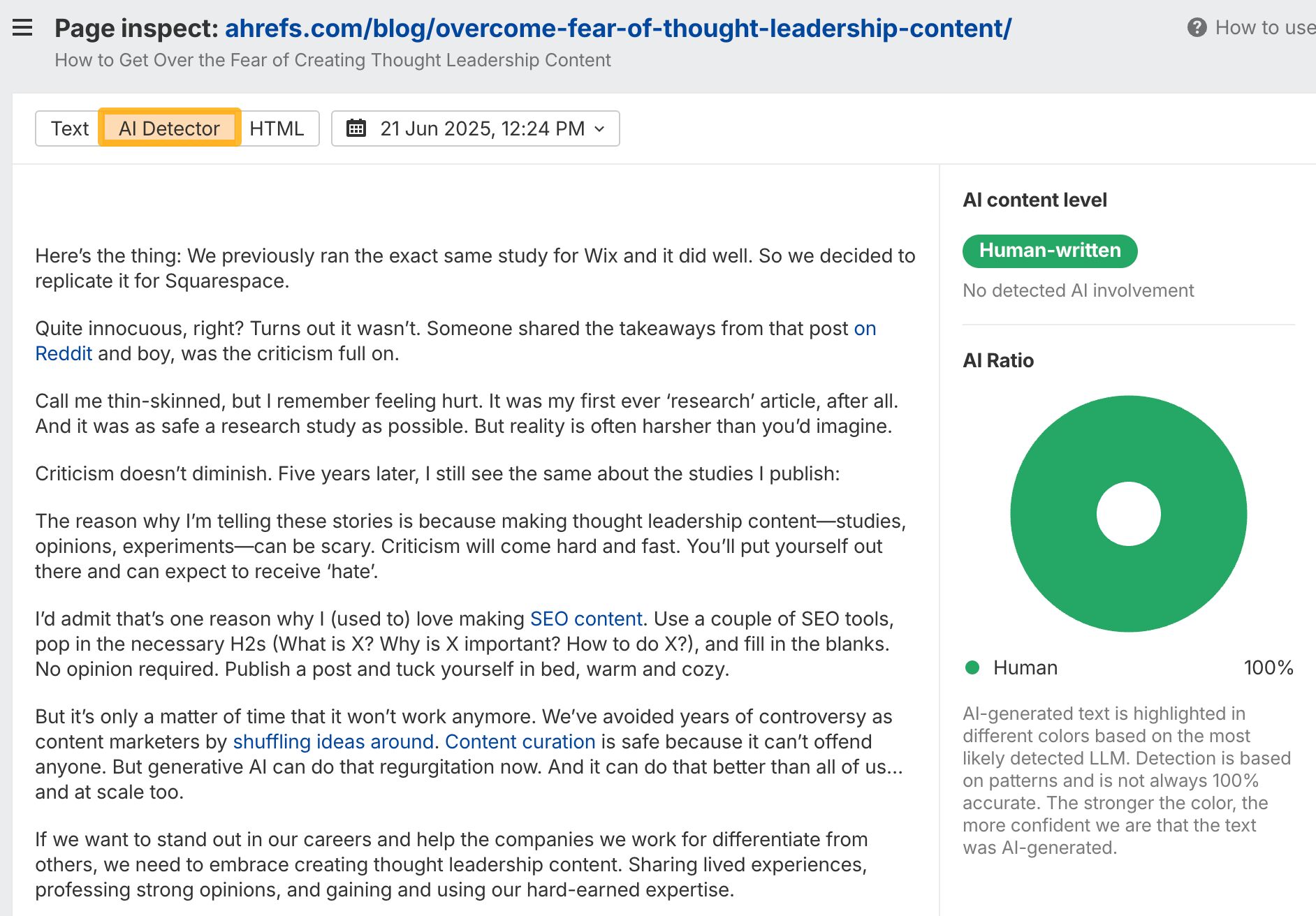
Here’s what our content detector found:
- 3.6% of pages cited in AI Overviews were categorized as “pure AI.”
- 8.6% were categorized as “pure human.”
- 87.8% were categorized as a mix of two.
Of the ones that were a mix of both human and AI:
- 11.2% showed minimal AI use (1-10% of the page content was categorized as AI)
- 44% showed moderate AI use (11-40%)
- 24.7% showed substantial AI use (41%-70%)
- 7.9% showed dominant AI use (71%-99%)
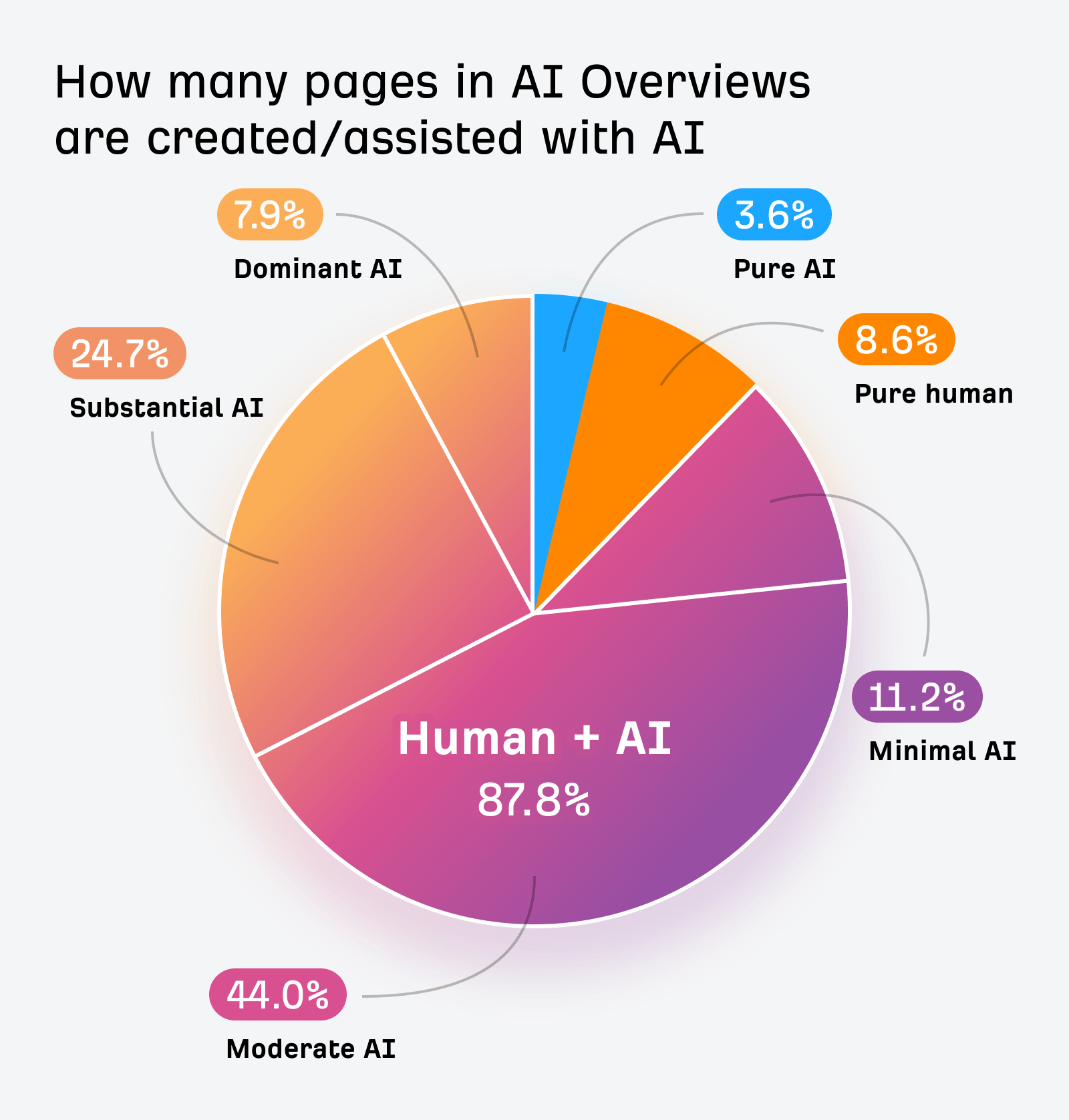
These findings become even more striking when compared to our previous research on AI content across the web. In our analysis of 900,000 new pages, we found that:
- 2.5% of pages were categorized as “pure AI.”
- 25.8% were categorized as “pure human.”
- 71.7% were categorized as a mix of the two.
Even though this research looked only at new pages (and not all cited URLs in AI Overviews will be new), this suggests that Google’s AI Overviews might show a bias toward citing AI-generated or AI-assisted content compared to the general distribution of content on the web.
Sidenote.
No AI content detector is perfect. Like LLMs, AI detectors are statistical models. They deal in probabilities, not certainty. They can be incredibly accurate, but they always carry the risk of false positives. You can learn more about how AI detectors work, and why they’re useful, in these articles:
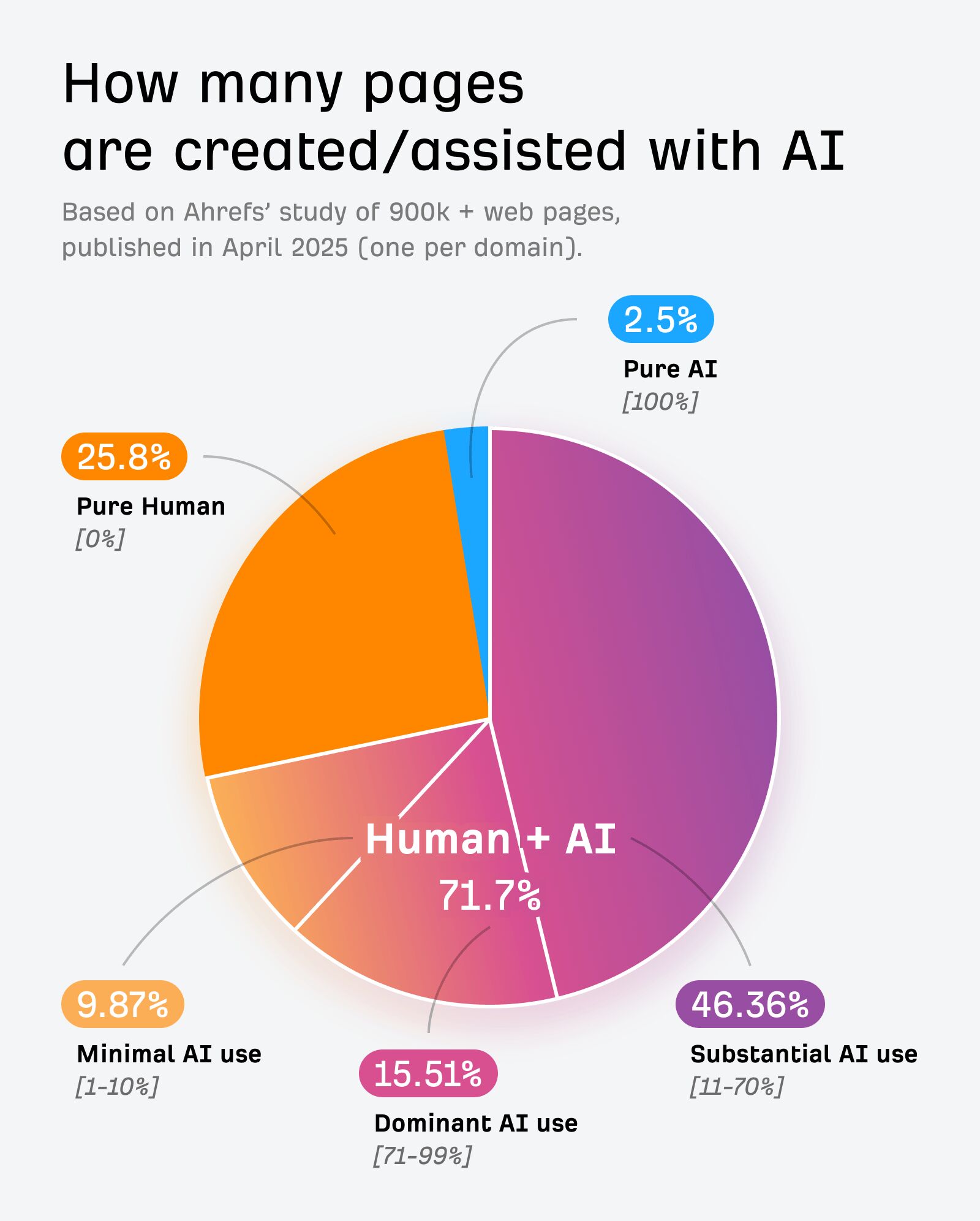
Google depends on creators for content. But creators are increasingly using AI to create or assist with content creation. For example, in our State of AI in Content Marketing report, where we surveyed 879 marketers, 87% of respondents use AI to help create content.
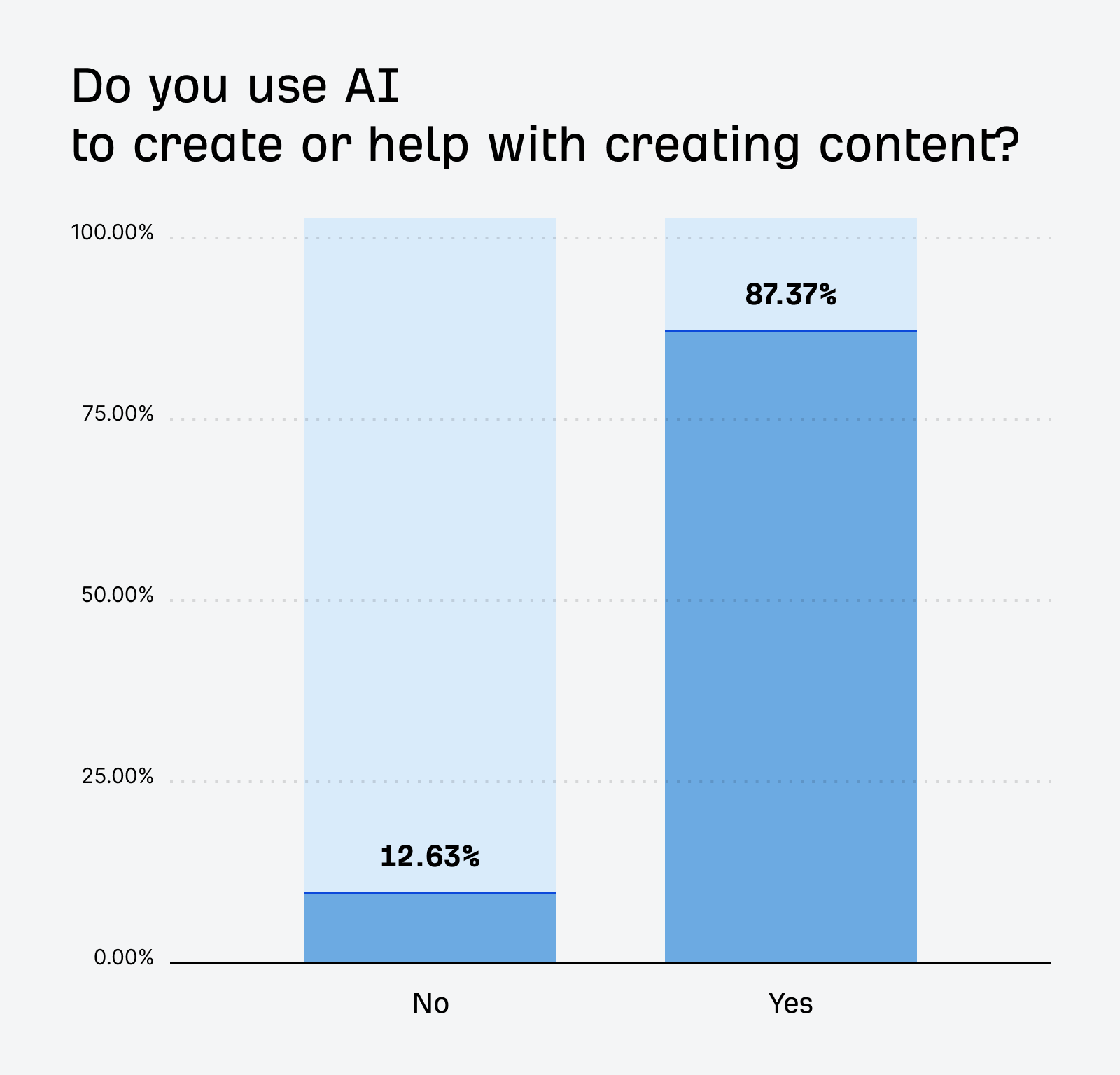
And even though Google’s trying to improve accuracy through retrieval-augmented generation (RAG), we’ve also found that 86.5% of top-ranking pages contain some amount of AI-generated content.
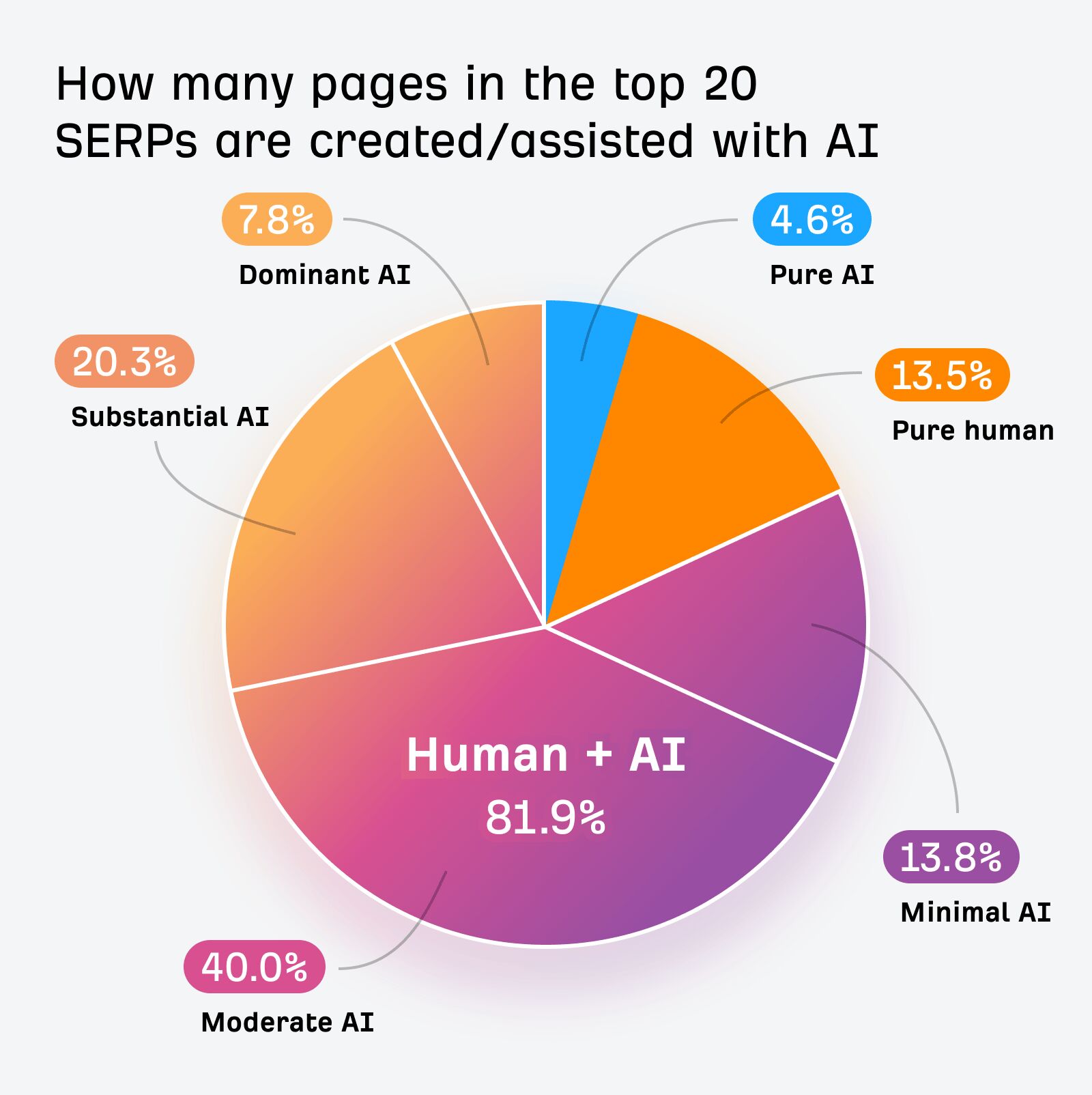
This means AI Overviews are drawing from a content ecosystem that’s increasingly AI-generated. We’re potentially witnessing the emergence of an AI content ecosystem where machines talk to machines.
Start using AI Content Detector
Ahrefs’ AI Content Detector is part of Site Explorer. Just enter any URL, go to Page inspect, then click on the AI Detector tab.
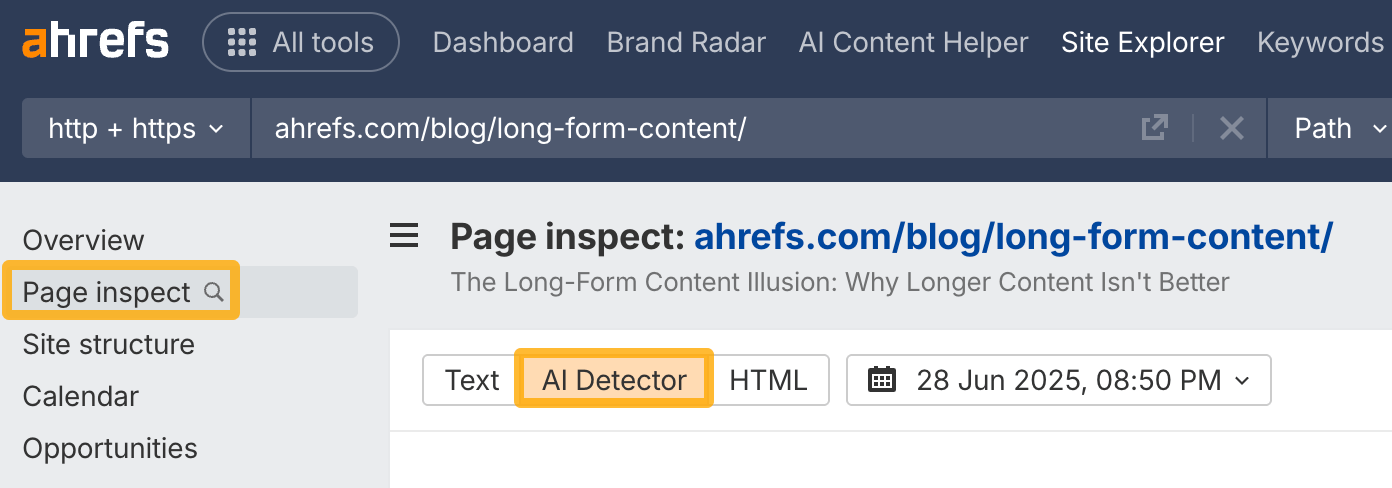
It’ll tell you what percentage of the content is AI-generated and which LLM was used.
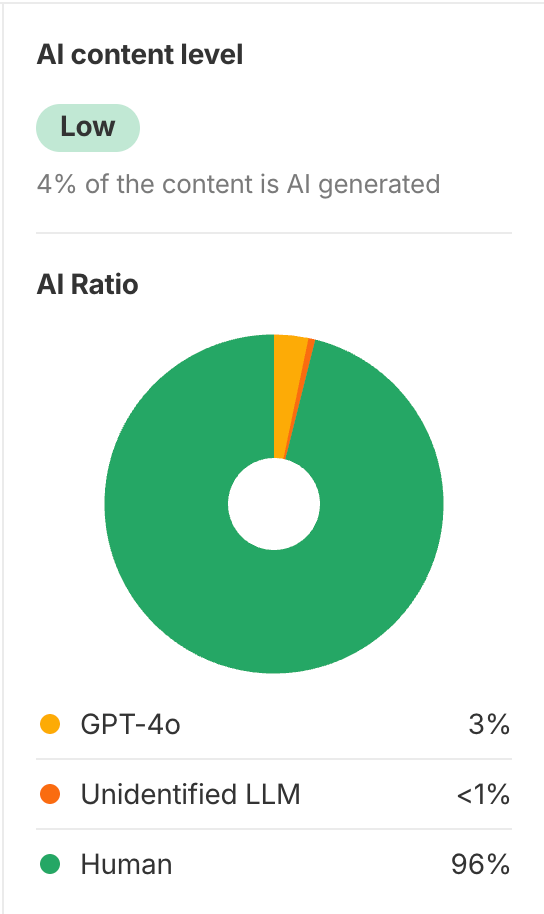
Similar Posts

How Edge Data Centers Are Enabling Next-Generation Applications
In the digital era, where businesses and consumers expect instant access to services and content, the…
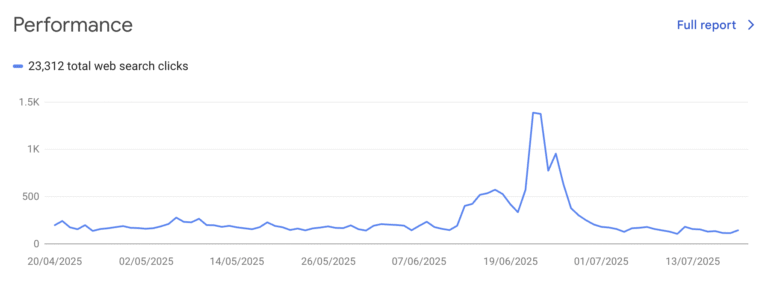
Google’s Free SEO Tools, Explained
Google provides a solid set of free SEO tools. From simple keyword research to performance tracking,…

Autoblogging with OpenAI’s GPT-4o mini
OpenAI has introduced GPT-4o mini, a new AI model designed to provide cost-effective solutions for content…
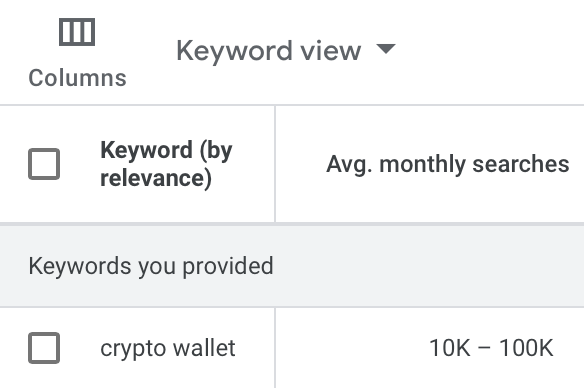
PPC Keyword Research for Google Ads: A First-Timer’s Guide
PPC keyword research is the process of finding the exact words or phrases people type into…
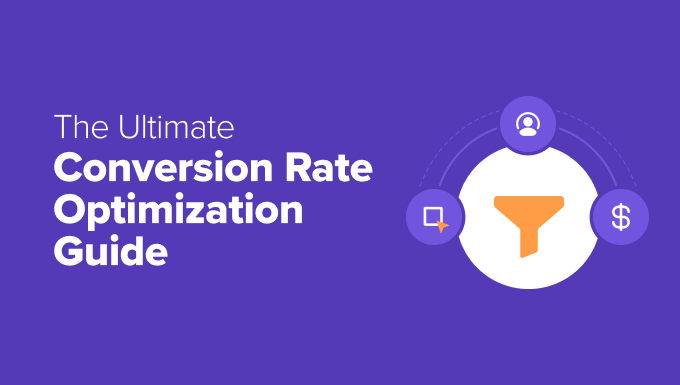
My Ultimate Guide to Conversion Rate Optimization in WordPress
You might have plenty of traffic coming to your WordPress site, but is it actually converting?…
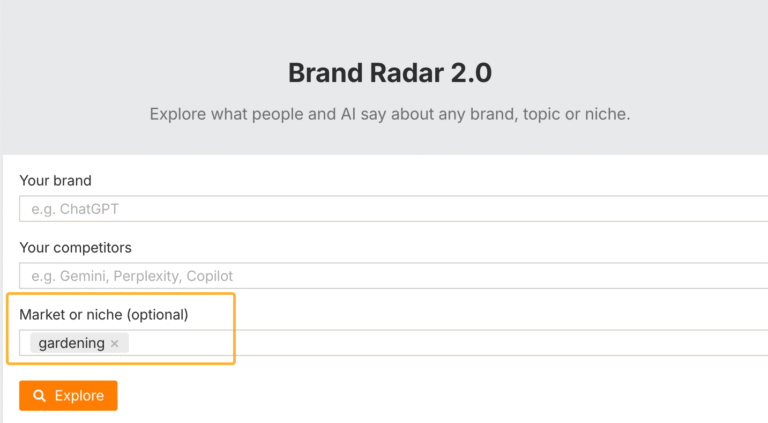
10 Ways to Use Ahrefs’ Brand Radar to Grow AI Visibility
SEO has undeniably changed. To stay discoverable in search, AI, and beyond, brands now need to…